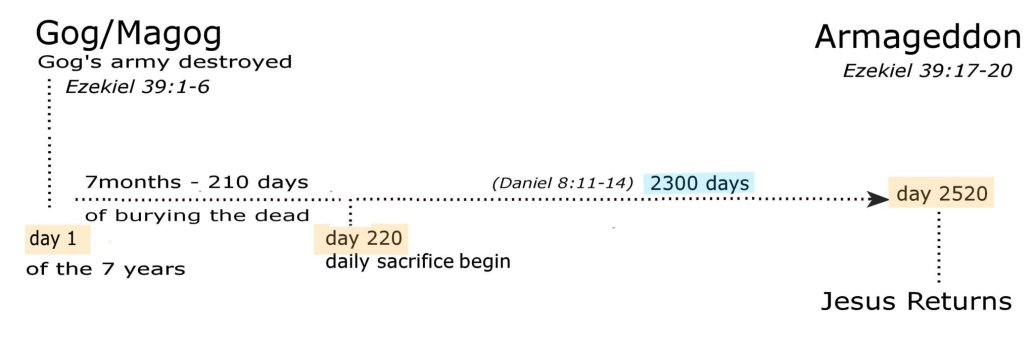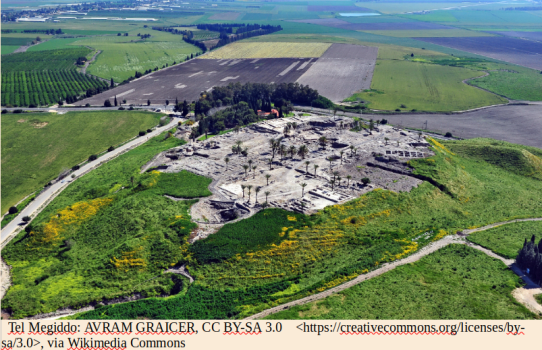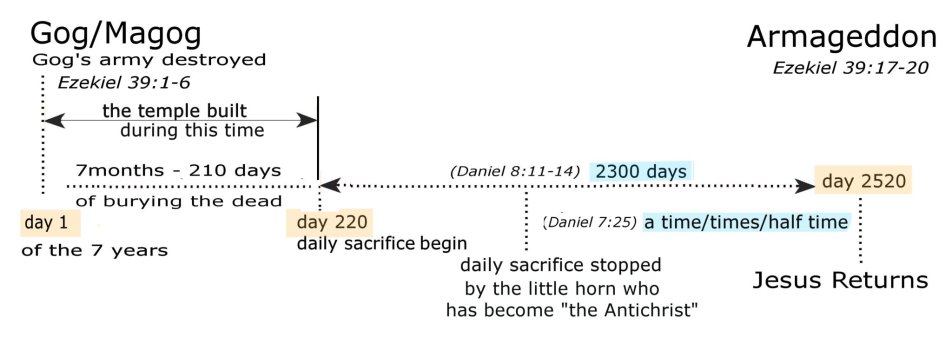That is your myopic rule and not any rule of literal hermeneutics
Does not apply to the Book of Revelation.
Well first off these are the symbols
(applauding)
But beast is defined in Daniel 7&9, Matt. 24, Thesselonians and Revelation
Show me and explain it yourself to see if you know what God actually talked about.
The horns are defined in Daniel as kings
Indeed, God declared that "horns" represent kings. However, the horns in Scripture are a symbol representing
power.
Here is biblical lessons for you:
For example, in Psalms 8:21 or 2nd Samuel 22:3, saying "horn of my salvation" is the same as God declaring His
Power of salvation because the horn is the symbol in the Bible of
"Power". Not a physical king. So we can see why simply by looking at the natural world. The horns of a bull are his power, those objects that men are most afraid of. The horns of an animal are looked upon as its power even today. God used horns symbolically this way, which is why there were horns on the Altar of Israel. The altar is for the administration of the strength of sacrifice, which represented Christ. In understanding this we can readily see why God says "Horn of my Salvation," because all throughout the Bible we see it does illustrate they are used as a "figure" or symbol of the power or strength of whatever is in view. Let me give you some example to show how you compare Scripture to understand what horn really means:
Psalms 89:17
- "For thou art the glory of their strength: and in thy favour our horn shall be exalted"
People don't literally have a horn to be lifted up of course, but the horn is used here to convey the sense of believers being exalted in the glory of "His strength." We are lifted up in His strength (
Psalms 46:1; 81:1) rather than our own. e.g.:
Lamentations 2:3
- "He hath cut off in his fierce anger all the horn of Israel: he hath drawn back his right hand from before the enemy, and he burned against Jacob like a flaming fire, which devoureth round about."
To cut off the horn of Israel is to break their "power" so that they will be defeated. Again, this illustrates that their
horn is a symbol of their strength and power.
Deuteronomy 33:17
- "His glory is like the firstling of his bullock, and his horns are like the horns of unicorns: with them he shall push the people together to the ends of the earth: and they are the ten thousands of Ephraim, and they are the thousands of Manasseh."
Here again, the horn is used to symbolize the object of the
power and strength of the Bull that enables him to push against the people.
Lamentations 2:17
- "The LORD hath done that which he had devised; he hath fulfilled his word that he had commanded in the days of old: he hath thrown down, and hath not pitied: and he hath caused thine enemy to rejoice over thee, he hath set up the horn of thine adversaries."
In this passage, God uses the horn to signify that he has taken away the strength or power of Israel as judgment, and has exalted the horn (
or Power) of their adversaries to overcome her. In other words, while (verse 3) cutting off the horn of Israel means they no longer had power to stand against their enemies, setting up the horn of their adversaries (verse 17) means that the enemies now had the Power to conquer or overcome Israel. Clearly the
horns there signify Power or strength. We see that when a horn is broken or cut off, it is symbolism that one's power has been broken or cut off. Whether used in conjunction with a crown, where it's man's ability to rule (as a king), or for something to be unable to stand or have strength before an enemy, that signified the cutting off of power. E.g.:
Daniel 8:7
- "And I saw him come close unto the ram, and he was moved with choler against him, and smote the ram, and brake his two horns: and there was no power in the ram to stand before him, but he cast him down to the ground, and stamped upon him: and there was none that could deliver the ram out of his hand."
When the horn was broken, there was no more "power" in him to stand before the he goat. This is what those broken "horns" symbolized! Not about "king" in this picture. And the same with the power of evil when it was broken.
Daniel 8:8
- "Therefore the he goat waxed very great: and when he was strong, the great horn was broken; and for it came up four notable ones toward the four winds of heaven."
The great horn allowed him to push with power so that the Ram could not stand before him. For example, it 'symbolized' his great power. And likewise, when his horn was broken, it symbolizes his power being broken or taken away.
Likewise in Revelation chapter 17 where we see that the dragon had ten horns. Here the number ten signifies fullness of whatever is in view, and the horns signify power. So this imagery is to illustrate the
fullness of time these kings have "power" to rule along with the Beast.
Revelation 17:12
- "And the ten horns which thou sawest are ten kings, which have received no kingdom as yet; but receive Power as kings one hour with the beast."
The horns signify the "power" the "kings" had to rule with the beast for this short period.
1st Kings 22:11
- "And Zedekiah the son of Chenaanah made him horns of iron: and he said, Thus saith the LORD, With these shalt thou push the Syrians, until thou have consumed them."
Here God uses the imagery of horns of iron to illustrate the
great power of them by which they could push the Syrians and defeat them.
The recurring theme of
horns is that they symbolize the
power of whatever is in view. Likewise, the lamb of Revelation 5:6 has seven horns depicting its power. The number seven illustrates the
completeness or totality of whatever is in view, and thus this represents complete power. This signifies the lamb which was slain, was the appointed sacrifice and had
complete or total power. Even as Christ illustrated Himself.
Matthew 28:18
- "And Jesus came and spake unto them, saying, All power is given unto me in heaven and in earth."
1st Peter 3:22
- "Who is gone into heaven, and is on the right hand of God; angels and authorities and powers being made subject unto him."
So the Lamb with 7 horns signifies Jesus Christ, with complete power of God in the atonement. This of course is also witnessed by God speaking of the power of the sacrifice in the imagery of the 4 or universal horns of the altar.
Leviticus 4:7
- "And the priest shall put some of the blood upon the horns of the altar of sweet incense before the LORD, which is in the tabernacle of the congregation; and shall pour all the blood of the bullock at the bottom of the altar of the burnt offering, which is at the door of the tabernacle of the congregation."
Or in breaking the power of idolatry in breaking off the horns of the altar.
Amos 3:14
- "That in the day that I shall visit the transgressions of Israel upon him I will also visit the altars of Bethel: and the horns of the altar shall be cut off, and fall to the ground."
By this God is illustrating that he is taking away its power or strength.
The horns of the Dragon and the horns of the Lamb are related only in the sense that The Dragon is the substitute Christ or "Anti-christ" which mimics the true. The spirit of Satan the antithesis of the Spirit of Christ. He is truly the Pseudo christ. e.g.,
Revelation 13:11
- "And I beheld another beast coming up out of the earth, and he had two horns like a lamb, and he spake as a dragon."
Horns "like" a lamb. This is the substitute or Pseudo Christ who mimics the Lamb of God, but is truly the Antichrist. He comes looking like the "Power" of Christ, but his words are what gives him away. For they are not the words of God, they are the words of men, the words of nullification, compromise, and lawlessness. The word of God is what the man of God will come with, but the words of Antichrist is what the man of lawlessness (
sin) would come with. Satan's greatest deception is that he comes "looking like" the power of God and as a minister of righteousness (2nd Corinthians 11:14-15). He comes saying Peace, Peace, he comes with healings, he comes saying God loves you, because he is the great deceiver. This is his M.O. or Modus Operandi. In this sense that horns represent power. It is power no matter whose it is (
Satan's or Christ's).
How's that for Biblical hermeneutics, Ronald?? :-)





